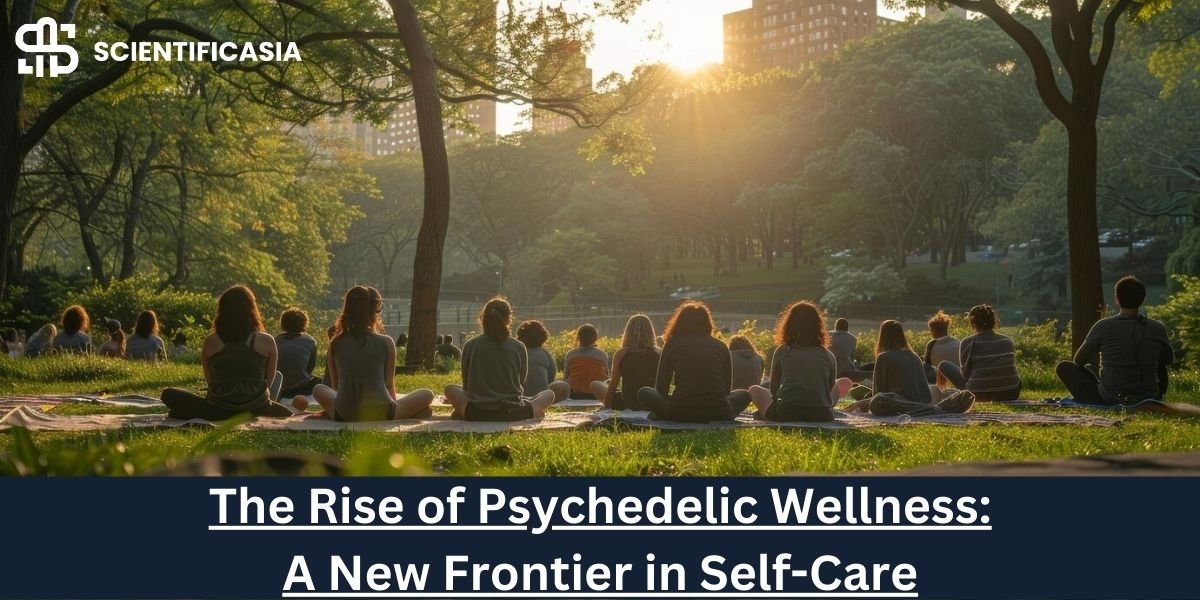The wellness industry has taken an unexpected turn, venturing into territory once considered taboo. Psychedelics, long associated with counterculture and illegal recreational use, are now finding their way into luxury retreats and therapeutic settings. This shift represents a fascinating evolution in our approach to mental health, personal growth, and overall well-being.
Old beginnings modern uses
The idea of using mind-altering substances for medicinal purposes is not new. Indigenous people have used plants such as peyote and ayahuasca in religious ceremonies for generations. Nevertheless, when it comes to yoga, meditation, and spa treatments, the acceptance of psychedelics marks a significant shift away from conventional approaches.
Mushrooms have magical powers
Psilocybin mushrooms, also known as “magic mushrooms,” lead this process. These fungi contain compounds capable of causing profound changes in consciousness, perceptions, and moods. In some cultures, they are used in traditional mushroom ceremonies for spiritual or healing purposes. Though most nations still consider them illicit drugs for pleasure use only, they can be used under controlled environments for medical conditions like depression, anxiety, or addiction.
The Allure of Transformation
Psychedelic retreats are often appealing because they assure transformational experiences. A well-guided psychedelic experience can cause one to comprehend oneself better, fix one’s emotional wounds, and grow in one’s personal life. Sometimes, these retreats combine the use of psychedelics with more traditional approaches to wellness to promote self-improvement.
Anatomy of a Psychedelic Retreat
A typical psilocybin wellness retreat usually spans several days and includes one or two sessions where participants are given psilocybin. Before and after an individual’s psychedelic experience, they might participate in some form of yoga, meditation, breathwork, or even group discussions. The ultimate aim is to create a supportive environment where the maximum benefits are derived.
Preparing for the Experience: Setting the Stage
This stage of preparation is vital. Often, individuals have medical and psychological tests to establish their suitability for such an activity. Additionally, participants may be required to reflect on what they expect to obtain or resolve during the trip by making intentions toward it. This process could take weeks or months, involving video calls as well as questionnaires and materials on the nature of the psychedelic experience.
The Journey Within
Trained facilitators tend to supervise participants in these psychedelic sessions. A lot of attention is paid to the setting to make it feel secure and comfortable. Sometimes, music is used, scents are introduced, or natural settings are organized to create a relaxed environment. These sessions differ in duration and can stretch for a couple of hours.
Moving Beyond The High: Desires for Growth and Healing
It’s worth mentioning that these retreats are not just about using psilocybin or escaping reality. They emphasize personal growth, healing, and self-discovery. For many participants, this means looking at old issues from new angles, letting go of emotional traumas, or reconnecting with themselves and everything around them.
Difficulties and Disagreements
Despite its positive aspects, the field of psychedelic wellness has seen its fair share of challenges. The legal status of psilocybin and other psychedelics remains a significant hurdle in many countries. While some jurisdictions are beginning to relax restrictions for medical or therapeutic use, most continue operating in countries with tolerant policies.
Concerns about Safety and Ethical Standards
These worries also revolve around safety and ethics. The very intense nature of psychedelic experiences can be overwhelming for some people if not performed under the guidance of professionals. This has raised concerns about psychological damage being done, particularly in retreats that could prioritize profit over participant’s well-being.
Standardization Needs
A further point of concern is standardized practices or regulations. Many retreats are directed by experienced and well-meaning facilitators. Still, it may be hard to identify professional facilitators as there isn’t currently accreditation guaranteeing consistent standards of care and safety.
A Trend on the Rise
Interest in psychedelic wellness continues to grow amid these obstacles. This is part of a broader change in how people approach mental health and personal growth. With traditional approaches to addressing depression or anxiety proving inadequate for some individuals, they are exploring alternative means that provide deeper transformational experiences.
The Scientific Perspective
The scientific community is also paying attention. The research on the therapeutic potential of psychedelic drugs has been expanding, and there have been encouraging results in treating PTSD, addiction, and end-of-life anxiety. More emerging data may help to legitimize and improve wellness retreat practices.
The Future of Psychedelic Wellness
The future of psychedelic wellness is hopeful. With legal changes and evolving cultures, these methods are likely to become more popular across different societies or even within mainstream health systems. However, this process of going mainstream will be fraught with complex negotiations among traditional indigenous customs, contemporary therapeutic approaches, and commercial interests.
Conclusion: A New Frontier in Self-Care
Psychedelic wellness retreats represent a fast-growing market within the broader field of wellbeing. They merge ancient wisdom traditions with modern science – a combination that holds great transformational promise for individuals seeking personal growth. Like any new wellness trend, would-be participants should approach it with an open mind and caution; they should carefully examine their practices before committing to such an intense experience.















